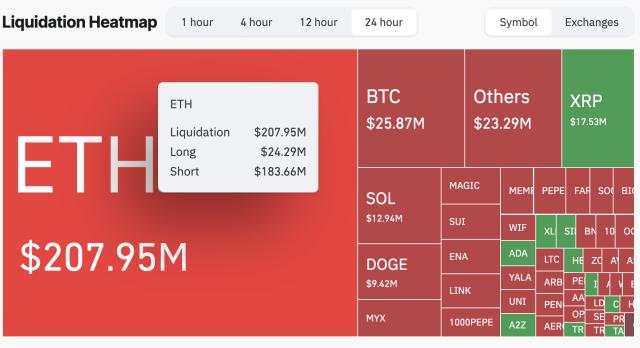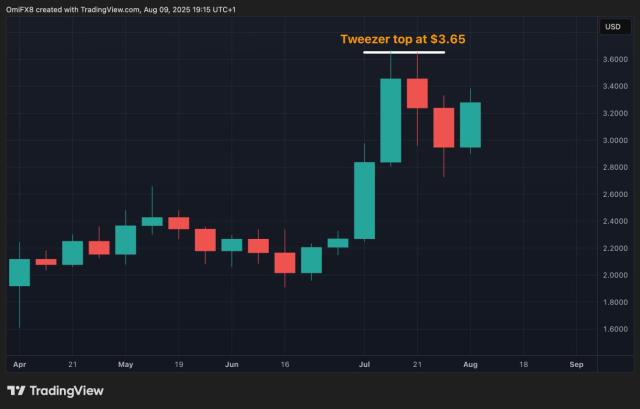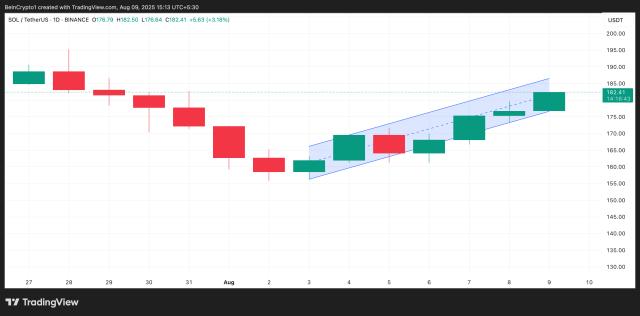Creating the Future: U.S. Leadership in the Financial Golden Age
Today, I want to declare to the world that under my leadership, the SEC will not stand idly by while innovation flourishes overseas while our own capital markets remain stagnant.
To realize President Trump's vision of making the United States the global crypto capital, the SEC must comprehensively consider the potential benefits and risks of migrating our markets from off-chain to on-chain.
We are standing at a new threshold in the history of capital markets.
Today, I officially announce the launch of the "Crypto Plan", an SEC-wide initiative aimed at modernizing securities regulations to enable a comprehensive migration of U.S. financial markets to the blockchain.
Just a few weeks ago, President Trump signed the GENIUS Act, establishing global golden regulatory standards for stablecoins in the payment domain.
After signing, he publicly supported congressional passage of crypto market structure legislation this year. I appreciate the bipartisan support shown by the House in this process and look forward to the Senate further refining related laws to establish an institutional structure that protects against regulatory overreach and consolidates the United States' leading position in the global crypto industry.
Yesterday, the Presidential Digital Asset Market Working Group released the PWG Report, providing clear recommendations to the SEC and other federal agencies to establish a framework to maintain U.S. leadership in the crypto asset market.
This report is a blueprint intended to ensure the United States remains at the forefront of blockchain and crypto technology. As the President said last week, he wants the "entire world to run on U.S. technology infrastructure". I am ready to help achieve this goal.
Therefore, I have launched the Crypto Plan and instructed the SEC's policy department to work closely with the crypto working group led by Commissioner Peirce to quickly develop implementation plans for the PWG Report recommendations.
The Crypto Plan will ensure the United States remains the best country for entrepreneurship, developing cutting-edge technology, and participating in capital markets.
[Translation continues in the same manner for the entire text]Many people ask me: "What is a super app?" It's simple: Securities intermediaries should be able to provide diverse products and services on one platform, under one license. A brokerage with an Alternative Trading System (ATS) should be able to simultaneously offer non-securities crypto asset trading, securities crypto asset trading, traditional securities services, and services like pledging and lending, without needing to apply for licenses in over fifty states or multiple federal licenses.
Currently, federal securities laws do not prohibit registered trading platforms from listing non-securities assets.
I have instructed committee staff to develop further guidance and plans to promote the implementation of such "super apps". Perhaps we will ultimately name it "Reg Super-App".
According to the PWG Report recommendations, the SEC should collaborate with other regulatory agencies to establish the most concise and efficient licensing system for registered intermediaries, avoiding multiple regulatory overlaps.
This model is widely adopted in banking, where banks generally do not need additional registration as brokers or clearing institutions. Regulators should provide oversight with the minimum necessary dosage, protecting investors while encouraging business growth. We should not drive companies overseas with overly paternalistic regulation, nor should regulatory burdens favor resource-rich large companies, thereby stifling the competitiveness of small and medium enterprises.
Based on specific recommendations in the PWG Report, I have instructed the committee to develop a framework that allows non-securities and securities crypto assets to trade in parallel on the same SEC regulatory platform.
Additionally, I have requested an assessment of how to use the committee's powers to allow certain crypto assets to be listed on non-SEC registered trading platforms.
This will not only enable state-licensed platforms to offer more assets but will also provide margin functionality for CFTC-regulated platforms, despite Congress not yet granting additional powers, which will release greater liquidity.
Unleashing US Market Potential: Beautiful and Powerful On-Chain Software Systems
Fourth, I have instructed committee staff to update outdated regulatory rules to unleash the potential of on-chain software systems in the US securities market.
On-chain software comes in various forms—some systems are truly decentralized, not dependent on any intermediary operations; others are maintained by specific operators. Regardless of the form, they should have a place in our financial markets.
Any market structure regulatory framework for crypto assets must provide a clear path for on-chain software developers who do not rely on centralized intermediaries. Decentralized Finance (DeFi) software systems—such as Automated Market Makers (AMM)—can enable automated, non-intermediary financial market activities.
US federal securities laws have consistently assumed the existence of regulatable intermediaries in the market, but this does not mean we should forcibly introduce intermediaries just to conform to old regulatory logic. If the market can operate without intermediaries, we should respect that.
We will leave space for both models—centralized and decentralized—to develop in the US market.
We will protect developers who simply publish software code, reasonably delineate the boundaries between intermediary participation and non-intermediary activities, and establish clear, feasible regulatory rules for intermediaries wishing to operate on-chain software systems. DeFi and other on-chain software systems will become part of our securities market, rather than being stifled by redundant or excessive regulation.
To realize this vision, we need to modify existing rules. For example, to support on-chain securities trading, we may need to revise the National Market System Regulation (Reg NMS).
In fact, twenty years ago, I co-authored a dissenting opinion with then-Commissioner Cynthia Glassman opposing Reg NMS, and today, those concerns seem even more relevant.

Over the past twenty years, the excessive requirements imposed by Reg NMS have distorted market activities and hindered the natural evolution of the US securities market. Congress originally envisioned that "competitive forces, not excessive regulation" would drive the development of the national market system. I will strive to bring us back to this original intent and further promote innovation and competition in the market.
Promoting Innovation: Commercial Viability as Our North Star
Finally, innovation and entrepreneurial spirit are the engines of the American economy. President Trump once called America the "nation of builders". Under my leadership, the SEC will encourage this spirit, rather than suppressing it with bureaucratic and one-size-fits-all rules.
The current committee is actively considering reform proposals from the industry to stimulate innovation; simultaneously, we are exploring the introduction of an "innovation exemption mechanism"—allowing registered and unregistered institutions to quickly bring new business models and services to market, even if these models do not perfectly align with existing rules.
In my vision, this innovation exemption mechanism will allow technological pioneers and business innovators to immediately participate in the market without adhering to outdated or economically restrictive regulations.
Correspondingly, they will need to comply with principle-based conditions to achieve the core policy objectives of federal securities laws. These conditions might include: commitment to periodic SEC reporting, introducing whitelist or "certification pool" functions, and only allowing securities tokens that meet compliance function standards (such as ERC3643) to circulate. I encourage market participants and SEC staff to consider "commercial viability" as a core consideration when developing models.
Conclusion
In advancing these key initiatives, I look forward to collaborating with government colleagues to make the United States the global center for crypto assets.
This is not just a regulatory transformation, but a once-in-a-generation historical opportunity.
From paper agreements under the sycamore tree to electronic ledgers on the blockchain, the winds of innovation have always been blowing. Our mission is to let this wind continue to carry America's leadership. Ladies and gentlemen, we have never been content to lag behind. We will not be spectators. We will lead the trend. We will be pioneering. We will ensure that the next chapter of financial innovation is written in the United States.
Thank you all for listening today. Please stay tuned for our upcoming announcements and proposals, and as always, we welcome your valuable suggestions and comments.
Disclaimer: As a blockchain information platform, the articles published on this site represent only the personal views of the authors and guests, and are not related to Web3Caff's stance. The information in the articles is for reference only and does not constitute any investment advice or offer. Please comply with the relevant laws and regulations of your country or region.
Welcome to Join Web3Caff Official Community: X(Twitter) Account丨Web3Caff Research X(Twitter) Account丨WeChat Reader Group丨WeChat Official Account







